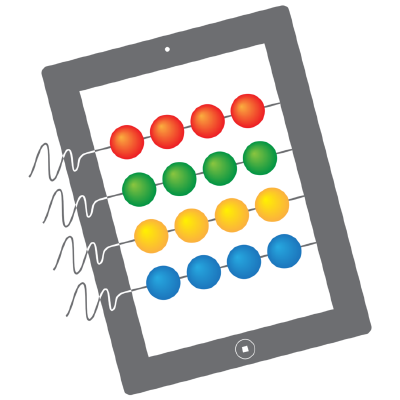Current Projects
DSSA
Accompanied self-study is enormously important for the development of the self-learning competence of students. However, various studies show that students often have problems with motivation and understanding. The aim of the project is therefore the development and use of a “Digital Self-Study Assistant” (DSSA), which accompanies students in self-study. The support takes the form of a dialogue in which the DSSA asks students questions, but is also available to answer them. The DSSA takes into account the diversity of the students: Students receive direct feedback and can be individually supported by questions and hints appropriate to their competence level. We expect this to lead to greater success for students in preparing their lessons. Lecturers can be informed about unanswered questions from students and thus gain more insight into typical comprehension problems.
Agile and Ontology-Aided Meta-modeling
Models abstract away from a complex reality by rapresenting relevant concepts to focus on. The abstraction facilitates the human interpretation and has the ultimate goal of enhancing decision making. To support this purpose, existing modeling languages provide sets of pre-defined constructs from which models can be created. In case of standardized modeling languges like BPMN 2.0, CMMN 1.1 etc. constructs are broadly known and aim for the global consensus. Although such languages bring the benefit of creating uniform models across companies, they are not sufficiently expressive to adress any application domain. This leads to the inability of models to capture and retain relevant and domain-specific concepts of an underlying reality. There exist approaches that strive to overcome this inability by using meta-modeling techniques, through which domain-specific modeling requirements can be accommodated in the modeling languages. However, they rely on the sequential waterfal-like approach of modeling and meta-modeling (i.e., conceptualize, implement, deploy and test), which hinders the rapid prototyping of domain-specific modeling languages. This is problematic as it goes in contrast with the current needs of enterpreises, which more and more have to be quick in delivering specific-purpose digital products or services to customers.
In our research institute, we conceived and agile meta-modeling approach that allows adapting and integrating modeling languages on-the-fly, thus it avoids the sequential waterfall-like approach. To enable automation of models, the approach is fully ontology-based. Hence, both modeling languages and models are not only graphically represented but also expressed in an ontology form. The approach has been implemented in an Agile and Ontology-Aided Meta-modeling Environment (AOAME) and has been applied for domain-specific business process modeling and in innovation projects.
Past Project

CloudSocket
Business and IT-Cloud Alignment using a Smart Socket funded by the European Commission, ICT
» Webpage of CloudSocket

LearnPAd
Model-Based Social Learning for Public Administrations
funded by the European Commission, Technology-Enhanced Learning
» Webpage of LearnPAd

Knowledge Work Designer
A Modelling Environment for Flexible, Knowledge-based Business Processes
Development of the Knowledge Work Designer
» Download from OMiLAB
Sbicc
Informatec offers consulting and support for the introduction of Business Intelligence (BI) solutions in a wide variety of industries. The service of Informatec consultants includes the identification of analytical requirements, the definition of required reports and dashboards up to the technical implementation (configuration and installation). The consulting process is characterized by implicit knowledge and is based on the experience of Informatec consultants. The aim of the project was to partially outsource the consultant’s knowledge to a digital BI consultant, the Smart BI Cloud Configurator (SBICC), which automates parts of the consulting process and thus offers customers the opportunity to configure a BI solution online at low cost and to have it available as a cloud service within a very short time.
We implemented SBICC as a web application that reflects a typical consulting process in which a) the most important characteristics of the customer are collected, such as e.g. industry, business processes and further requirements for the BI solution, b) a solution can be configured by selecting e.g. important key figures and displaying them clearly in diagrams and c) the selection process is completed with a checkout and the technical implementation is handed over to the Informatec consultants.
The solution is based on a recommender system, which is fed with experiences from past consulting projects (case base), as well as further consultant experiences compiled in a knowledge base.
